Providing the tools needed to succeed
Published on January 15th, 2020
When you are managing an Olympic Sailing Program, you can either rely on competition within the country to allow young sailing talent to rise toward the Program, or the Program can reach down and pull them up.
For the USA, the medal-leading domination of its Program evaporated when it failed to recognize how changes within its borders, and throughout the world, were conspiring against it. At a time when the USA youth structure had focused on encouraging participation with non-technical equipment, increased funding abroad was elevating aspiring international Olympians.
When the US Team failed to medal for the first time at the 2012 Olympics, it became clear how the youth landscape was no longer providing the skills needed, and that the Program must start working with the youth ranks to insure they have the essential tools to succeed at the Olympic level.
In this report by US Sailing, they provide an update on this initiative:
US Sailing’s Olympic Development Program hasn’t been a stranger to the success of young sailors since the organization first began creating a clear path from youth sailing to the Olympic Games. Thanks to support from the AmericaOne Foundation, US Sailing founded the first formalized Olympic sailing development initiative, called Project Pipeline, in 2015.
Five years later, the efforts of US Sailing’s Olympic Development Program (ODP) are translating to success at the adult level. The young athletes that first became involved with Project Pipeline are aging out of the Youth World classes and transitioning into the Olympic classes.
This new wave is what US Sailing’s Olympic Development Director, Leandro Spina (Miami, Fla.), dubs “ODP Phase Two.” As he puts it, it’s another step towards creating a steady flow of talent into Olympic sailing.
“We always envisioned the day where we’d help these sailors make the transition into the Olympic classes. It’s a critical piece of ensuring we have a steady flow of athletes coming into the U.S. Olympic program,” he said. “It’s really exciting now, to be watching them try the new classes and bring their talent to the next level.”
Since the early days of Project Pipeline, the program has produced 14 Youth World Championship medals, more than any other nation has done in the same time period. Now, the ODP is focused on supporting the athletes that are ready to transition into the Olympic classes, while continuing to develop the younger sailors who are still seeking success at the Youth Worlds.
With top-level coaching thanks to support from Quantum Racing and high-performance equipment from Oakcliff Sailing, the ODP has the means to foster the young athletes that want to compete in the Youth World classes and simultaneously support athletes ready to take the next step.
In 2019, several athletes that were involved in the early days of Project Pipeline began sailing Olympic class boats. The ODP now has athletes competing full-time on the Olympic class circuit in the Men’s 49er, Nacra 17, Women’s 470, Men’s Laser, Women’s Laser Radial, and Men’s RS:X fleets. This year, ODP “graduates” even went on to win Pan American Games medals, finish in the top 10 at an Olympic class World Championship, and qualify for the US Sailing Team.
Some of these promising athletes recently wrapped the first Olympic Development Clinic of 2020. From January 3-12, at the US Sailing Center in Miami, nearly 80 athletes who are focused on honing their skills in the Olympic classes joined the ODP for a training clinic and regatta led by coaches.
At the camp, the developing sailors were joined by three athletes on the US Sailing Team and Olympic Head Coach, Luther Carpenter (Cypress, Texas.). Carpenter spent the week working with US Sailing Team 49erFX athletes, Stephanie Roble (East Troy, Wis.) and Maggie Shea (Wilmette, Ill.), and bringing some of their focuses to the ODP group.
In their classroom sessions with the ODP athletes, Carpenter shared film featuring his commentary on Roble and Shea’s technique. “I think it was good for them to be exposed to the level of scrutiny at which I’m looking at the same boat, on the same day, in the same conditions,” said Carpenter. “Our skiff coaches then did a great job relaying what would be attainable at their level.”
In addition to a few US Sailing Team athletes, several of the camp attendees were Youth World Champions that are ready to try their hand at the Olympic classes. Connor Nelson (Tampa, Fla.) finished in fourth place in the Boy’s Laser Radial fleet at the 2019 World Championships in Gdynia, Poland.
“The ODP really helped me through that entire process,” he said. “We had training camps for several years, and doing that prepared me to not only qualify for the Worlds but to succeed there. They truly helped me become a far better competitor than I think I would have been otherwise.”
Nelson is now building even further off of his success in the Radial. Like the rest of the sailors at the camp, he is constantly working to improve at the high-performance level. He’ll continue to do so as he navigates the transition from the Laser Radial to the Laser Standard.
Berta Puig (Miami, Fla.) and Bella Casaretto (For Lauderdale, Fla.) joined Nelson in Poland and came away from the event with the gold medal in the Girls 29er fleet, an accomplishment that has since put them on the shortlist for US Sailing’s Rolex Yachtswoman of the Year Award. At the camp, Puig and Casaretto took the next steps towards a full-time Olympic campaign and hopped into the 49erFX.
“Coming up to the FX, we’re really excited,” said Puig. “We’re pretty much working on basics right now. We’re doing lots of boat handling and working up to training by ourselves. Hopefully, with the ODP’s support, we’ll go far.”
Among Puig and Casaretto is fellow ODP athlete, Leo Boucher (West River, Md.). Though not quite on the campaign trail just yet, Boucher recently claimed victory at the 2019 Collegiate Singlehanded National Championships. He says that the ODP also played a big role in preparing him for college sailing.
“The ODP showed me what fitness means in sailing,” he said. “My goal has always been to be the best sailor I can be and the ODP also showed me what it takes to be a champion, what you have to do in your time on and off the water to get better at the craft. All that time in the program helped me get where I am.”
The ODP is committed to a long-term vision that will prepare athletes for the most elite levels of the sport. According to Spina, one of the best developments of the camp was the inclusion of foiling windsurfers. After the iQFoil was selected as the windsurfing equipment for the Paris 2024 Games, their debut at this camp was a natural step for the ODP.
With so much going on at the development level of the sport, Spina has a lot of reasons to look forward to the coming years.
“We’re at a really exciting point in the program,” he continued. “The U.S. has so much talent and with ODP Phase Two, we’re starting to see the results of what happens when those athletes are supported throughout their development. As we continue to work with these sailors, I’m sure we’ll have even more to look forward to on the way to Paris 2024 and LA 2028.”
This year will be a busy year for the ODP. The program has more training camps coming, including ones that will feature foiling kites. The ODP is also excited about the new Paris 2024 doublehanded offshore discipline, and this summer’s schedule will be packed with domestic Olympic class regattas and training camps. The updated master schedule will be available online, shortly.
If you’re interested in getting involved with the ODP, reach out to ODP@ussailing.org.


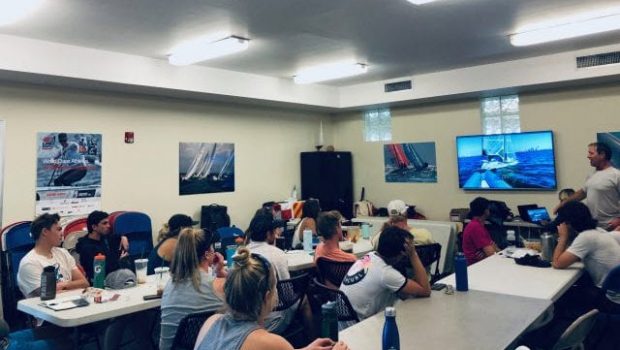


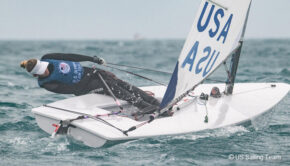
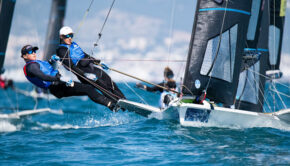
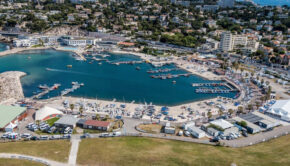
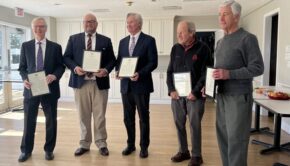
 We’ll keep your information safe.
We’ll keep your information safe.